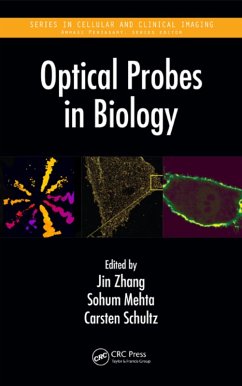This book explores the diverse capabilities of optical probes and presents various approaches used to design, develop, and implement these powerful and versatile tools. It examines the use of optical probes to detect and track numerous molecular processes in living cells, including GTPase and kinase activities, metabolic signals, RNA, and histone modifications. The book also covers sophisticated imaging techniques and equipment used to visualize and track optical probes and discusses emerging techniques that are expanding optical probe-based approaches into new biological frontiers.
Dieser Download kann aus rechtlichen Gründen nur mit Rechnungsadresse in A, B, BG, CY, CZ, D, DK, EW, E, FIN, F, GR, HR, H, IRL, I, LT, L, LR, M, NL, PL, P, R, S, SLO, SK ausgeliefert werden.









